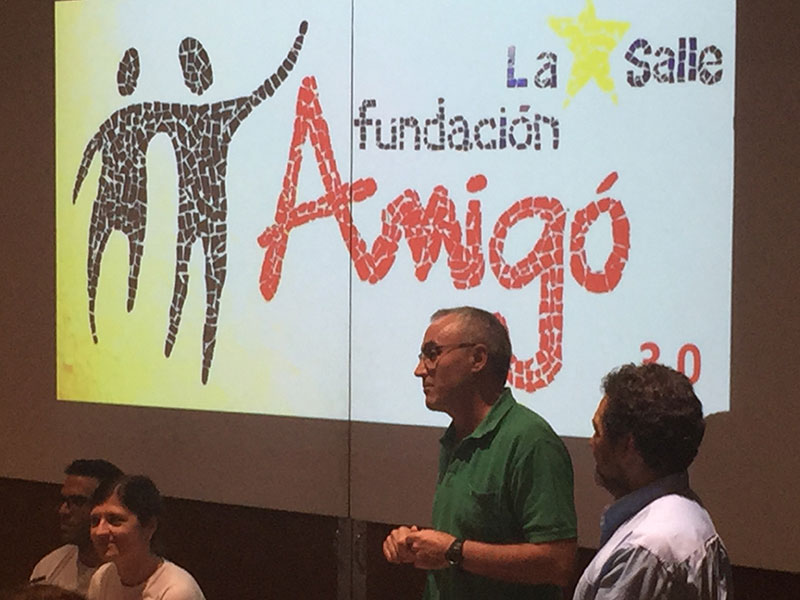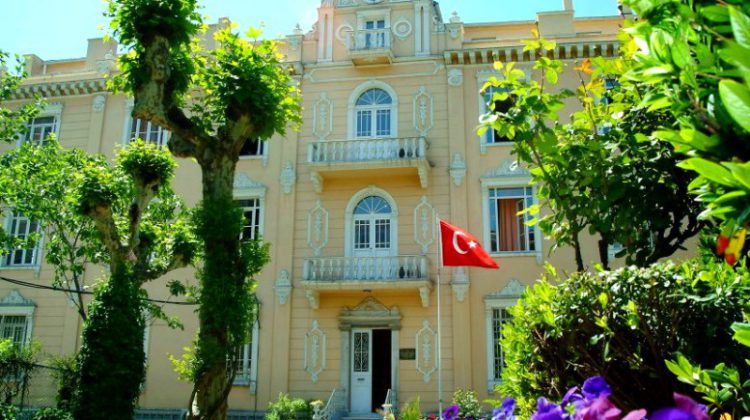“There is apparent calm in all major centers of the country, in reality this is a bomb about to explode.” writes from Juba Fr. Bill Firman, Lasallian, including the leaders of the Solidarity Project with South Sudan since 2007 operating in the country, supported by more than 220 male and female religious congregations, with 5 specific training projects with a great future.
“People are scared and hungry. Many have no shelter, no food. The cousin of a deacon was executed by soldiers at a check point on the sole ground that he was from the Nuer tribe. The border with Uganda remains closed. Many seek escape in vain. The airport, packed yesterday, is open, but only fly charter. Red Cross,Doctors Without Borders and many others have evacuated their staff. Yesterday twenty national security guards raided a hotel where they were several Australian and European and girls have been raped there. An American who tried to help them was shot in the foot. The decline of public order and the growing anarchy are huge problems. There is nervousness in other cities.”
Fr. Bill has still hears the blows of rifles in recent days: “around our house, the rockets in the sky, the compound of the Combonian Missionaries in the middle of a shootout; so around the cathedral in Kator and elsewhere. A story announced writes.
This is confirmed by, Br. Amilcare Boccuccia, 2007-2011 the project manager, “a Sudanese priest had told me years ago: “no doubt, we will vote the referendum, but it will be followed by 100 years of civil war till we become a people. Sins of colonialism — which used ethnicities, already traditionally divided, in order to remove them further and control them; and then, the oil curse in a country that appears hardly explored, with proceeds used to placate the leaders of different factions and the people are hungry of everything”, insisted Br. Bill: “The peace process has broken down. Reprisals will resume in other parts of the country where the rebels are the strongest. The government of South Sudan is bankrupt. It does not pay the soldiers and many other public employees, who end up stealing out of desperation. And we? We want to stay, to continue giving answers of life and a possible hope.”
The invitation to visit South Sudan addressed to the Union of Superiors General comes from a bishop, and it was in 2006, after the signing of the Naivasha peace treaty that ended the second Sudanese civil war. An inter-congregations team explores it carefully. “Then emerged the clear priority,” explains Br. Amilcare: “training.” Two areas were selected: “Education — served over 100,000 teachers — and health.” Today there are 264 qualified teachers. 175 currently engaged in training in the fourth year, 114 in that of the two-year period. Those involved in training a total of 3,443 that has seen teachers move to more distant communities to offer courses of study. Among the paramedics graduated 70 nurses and 19 midwives. In formation, another 100. Five training venues of the project in cities like: Malakal for education, to the north, now occupied by the Dinka, Wau, for health care, where the Comboni Sisters manage the Training Hospital; on the border with Congo, Rimenze for the advancement of women and thriving center of agricultural teaching and Yambio, for the training of teachers, an aspect which Lasallians are responsible. A team also for the pastoral care runs across the country to alleviate the trauma of conflict and offer new paths, with a further center, opening soon, at 16 km from Juba.
Over 5 million euro were collected to support the project in the first phase alone, between 2007 and 2011. Among the donors, the CEI, Italian parishes, but also many individuals and organizations in Spain, Ireland, Germany. “There is no tradition in the past that gave these people the consciousness of being a people. We cannot run away. Only then we will have an equal relationship with them. We are called to invest, risking our life to sow the future.” (Laura Galimberti).
Solidarity with Sudan South (SSS) is a response to an invitation from the SCBC, the Episcopal Conference of Sudan. Advanced earlier by Bishop Joseph Gasi from the diocese of Tambura-Yambio and then by all the Bishops of the South of Sudan. After the visit of the delegation sent by UISG (International Union of Superiors General) and USG (Union of Superiors General) in March 2006 was established a new initiative called Solidarity with South Sudan. The initiative currently has more than 260 religious institutes supporters of the project, and 31 members in the field.
Laura Galimberti
www.lasalleitalia.net












